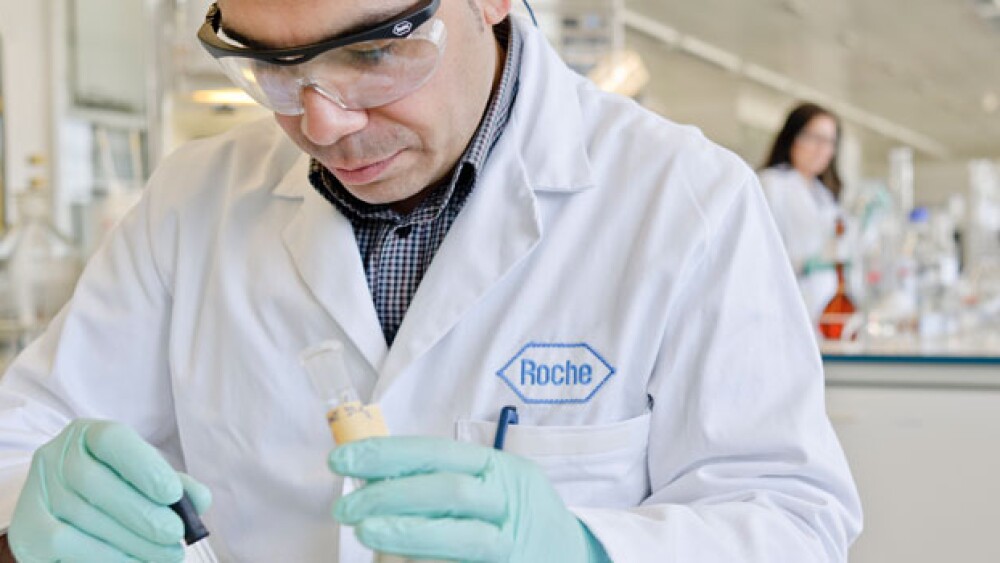Late Thursday the companies touted biomarker data from an early-stage study that showed the drug lowered the disease-causing protein in people with the disease.
Three months ago Roche forked over a payment of $45 million for rights to Ionis Pharmaceuticals, Inc. investigational drug IONIS-HTTRx for the treatment of Huntington’s disease. Late Thursday the companies touted biomarker data from an early-stage study that showed the drug lowered the disease-causing protein in people with the disease.
In a Phase I/II study Ionis said IONIS-HTTRx (also known as RG6042) top-line data showed the treatment is effective in lowering the mutant huntingtin (mHTT) protein, which destroys neurons in the brain and results in a decline in mental abilities and physical control. Huntington’s disease is caused by this genetic mutation in the huntingtin gene. IONIS-HTTRx is Generation 2+ antisense drug designed to reduce the production of all forms of the huntingtin protein, including mHTT.
During the trial, researchers said they tracked mHTT reductions of up to approximately 60 percent and mean reductions of approximately 40 percent in cerebral spinal fluid at the two highest doses given to Huntington’s disease patients who were treated for three months with IONIS-HTTRx. The mHTT reductions in cerebral spinal fluid correspond to an estimated 55 percent to 85 percent reduction in the cortex of the brain, where mHTT is highly expressed, based on preclinical data, researchers said. The reductions observed in the Phase I/II trial exceeded reductions researchers saw in preclinical animal models, Ionis said.
Huntington’s disease is an inherited rare and fatal neurodegenerative disorder that affects more than 35,000 people in the United States. Sarah Tabrizi, the lead trial investigator and director of the University College London’s Huntington’s Disease Centre, touted the results she saw in the Phase I/II trial. Tabrizi has worked with Huntington’s disease patients for about 20 years and said she was familiar with the devastation the neurodegenerative disease wreaks on patients and families. Tabrizi said the results from treatment with IONIS-HTTRx has given the Huntington’s disease community “new hope for a therapy that can reduce the cause of HD.” Tabrizi added that if the cause of Huntington’s disease can be reduced, the treatment can slow progression and potentially prevent the disease in future generations.
“I look forward to a longer-term, larger study that can establish the benefit of reducing the toxic mutant huntingtin protein in people with HD,” Tabrizi said in a statement.
Roche has been working with Ionis on this program since 2013 and is now leading the development of IONIS-HTTRx (RG6042) after acquiring the rights last year. The Swiss-based pharma giant is planning a pivotal trial to determine the clinical efficacy and safety of IONIS-HTTRx (RG6042). An open-label extension study for patients who participated in the Phase I/II study is ongoing.
Frank Bennet, head of research and franchise leader for Ionis’ neurological programs, said they have been pleased with the antisense approach, which targets all forms of the huntingtin protein. He said that approach shows targeting the toxic protein can “significantly reduce the underlying cause” of the disease.
Ionis and its antisense program have seen some success, particularly with the 2016 approval of spinal muscular atrophy treatment Spinraza, which the company co-developed with Biogen. Additionally, the company has another drug under review by the U.S. Food and Drug Administration. Inotersen is an investigational drug for the treatment of patients with hereditary TTR amyloidosis. The FDA is expected to decide on the drug by July 6.





